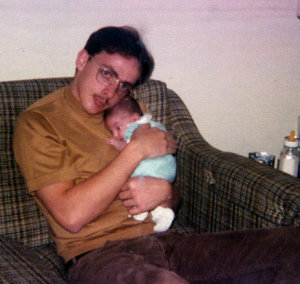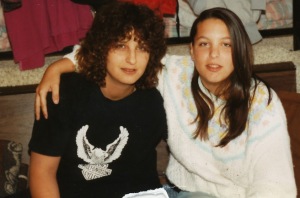Once Upon a Time — How I Wrote Amaskan’s Blood
Once upon a time.
Growing up, those were words uttered by mothers right before bedtime. They were synonymous with family, with love.
When staying over at a friend’s, the mother would crack open a storybook to read to us, something my father didn’t have the time to do. Once upon a time meant an escape—a dive into another world where adventures and magic existed, where mothers didn’t disappear or lie, where I didn’t have to raise myself. But it also was a reminder of what I didn’t have. For the longest time, my once upon a time meant I possessed both a mother and a father. That is, until I grew up and convinced myself that I needed neither.
This is where Amaskan’s Blood began—deep within the recesses of my brain in a far away land where I didn’t need any parents, because they didn’t need me.
I was eight before I knew the truth. My mother was a drug addict. My mother was a compulsive liar. She was willing to tell any tale necessary to get her fix. I spent my childhood wishing for a mother so hard I thought I’d burst, and when mine stayed gone, I eventually gave up. I didn’t have a mother, and I never would.
Most of my stories focus on characters who make their own families, usually from friends. Blood meant nothing to me but betrayal. Life was safer and simpler without worrying about blood relatives. Imagine my surprise when my mother returned.
In Amaskan’s Blood, Adelei has two families: her birth family, who she feels has betrayed her, and her adopted family, an odd sort of holy assassins who live by a different code than the rest of the world. When she discovers that everything she’s ever known in her world is a lie, she finds herself having to choose between two different families.
Originally, this story focused on the political intrigue within various factions as Adelei fought to protect those around her, but as I struggled with my own definitions of family, the story evolved.
When I was fifteen, I met my mother for the first time in my life.
She’d been clean for about a year, but it wasn’t enough. When you hear that many lies, you learn to recognize them easily enough.
Once upon a time became a nightmare as she returned to the meth that kept her from me. The only time she called was to lie to me. Wild stories meant to trick me out of money, so she could get high.
For a while, I hated stories. They were lies.
By the time I’d written a dozen novels, she called me. I’d long convinced myself that my mother was dead. She died when I was a baby. I had all the family I needed in my husband and our kitties. But deep within in me was a core need for something, something I didn’t even recognize in myself until I wrote Amaskan’s Blood.
When mothers give birth, the release of hormones creates a connection between the mother and child. High endorphin levels can create an altered state of consciousness to help with the birth and can make a mother feel euphoric afterward. At a cellular level, we are part of our parents. We are connected to them in a way that is more than just hormones and endorphins.
Adelei never wanted this birth family who betrayed her. She never wanted anything more than the life she had, yet she finds herself drawn to her birth father in a way she doesn’t understand. Despite her anger and bitterness, she cares about him, and she hates herself for it. As she struggles through the death around her, she seeks answers to some very fundamental questions:
Who am I?
Who is my family?”
The world around us and our experiences within this world do shape who we are, but so do our parents. Our parents teach us how to interpret and respond to our experiences, and they shape our viewpoints during the formative years. They mold us until we are old enough to consider our own thoughts and beliefs.
When I was thirty-three, my mother called me because she was clean. She had been for six years. And in this time, the one thing she wanted most was me in her life. She was the mother I didn’t want. The mother I didn’t need.
Like Adelei, I resisted this new family that was thrust upon me: a mother and three half-siblings. I had more family that I would ever need in a single moment.
Once upon a time there was just me. Now it was more.
Despite my misgivings, the more I talked with my mother, the more I recognized that there was something there. A connection. And like Adelei, I hated myself for feeling drawn to this stranger. She didn’t deserve love from me. She’d abandoned me. She didn’t deserve me in her life.
Three years later, I couldn’t imagine my life without her in it. Nothing about those three years was easy, and everything about them was a struggle, but she’s my mother. There really aren’t words to explain it, which makes it that much more difficult to write about.
Adelei was willing to do anything to protect her family, both families when it came down to it, because family isn’t blood. It isn’t random people who share DNA. It’s connections. It’s people who know you better than you know yourself. Odd idiosyncrasies I’ve developed over the years are mirrors of my mother.
The way my characters possessed a love/hate relationship with their families came out of my relationship with my own, and in allowing myself this bond with my mother, I’ve found a way to create characters with a depth I didn’t know I could.
I don’t wish to indicate that any of this was easy. Writing Amaskan’s Blood was probably one of the most difficult and personal books I’ve ever written. In retrospect, writing Adelei through her struggles allowed me to deal with my own.
And at long last, once upon a time means only that:
Once upon a time.



